
Daizen Osakabe
Famous detective Kosuke Kindaichi follows a dying man's words to an enigmatic island, where he meets beautiful twin sisters and tragic events unfold.

Un científico predice un inminente terremoto que dejaría Japón reducido a escombros. En vez de accionar los canales de emergencia, los políticos y miembros de la comunidad científica no hacen caso a sus alarmas. Pronto, el anunciado terremoto tiene lugar, y ni gobernantes ni el ejército están preparados para la mayor hecatombe de la historia de Japón...
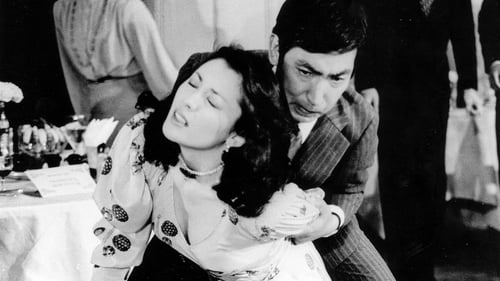
A selfish playboy uses rich women to pay off his debts. Divorcing his wife and marrying the woman he loves throws him into a spiral of destruction.

Jishu Tagami
A tragic love story between a prostitute and a young trainee monk.
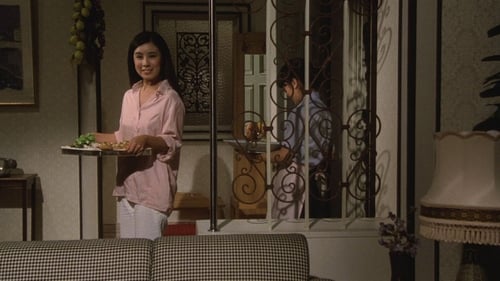
Mitsumasa
Noriko had been engaged to marry Toshiyuki Fujimura, who worked at her father’s bank. One day however, Fujimura mysteriously disappears. From that day, Noriko keeps herself locked up in her room. After three years of Noriko shutting herself up like a doll without a soul, Fujimura suddenly returns. Noriko’s family’s first reaction was strong rejection, but Noriko asks no questions and embraces him warmly. One day, as Noriko is cleaning her husband’s room, three envelopes accidentally fall from the pages of one of the books she had picked up. The first letter is dated August 11th, saying that his wife had suddenly taken ill. The second, dated August 20th, says that his wife is now critically sick, and the third letter, dated September 1st, is an announcement of his wife’s death. The wife is obviously Noriko, but she is alive and well. Do the letters then mean a preliminary notice of Noriko’s death?

Political fixer Homei Yamaoka's misdeeds come to light, throwing Japanese politics into deadly confusion. But he's not going down without a fight.

Una mujer joven está viviendo con un hombre de negocios mayor que tiene pasión animal por ella. Durante sus vacaciones en Kioto conocerá a un joven y guapo fotógrafo que supondrá un soplo de aire fresco.

Gozo Ohata
Taking the Chilean coup as an example, a group of young officers plan to overthrow the Japanese government on V-J Day. They aim to abolish the post-war constitution, restore the national army and revive the traditional spirit of Japan. As the conspiracy is exposed, the coup squadrons are wiped out one by one. The remaining squadron takes over a night train bound for Tokyo.

Kazumasa Sakura
The three-film saga comes to a conclusion as three leaders of the underworld battle it out to determine who will become Don of Japan.
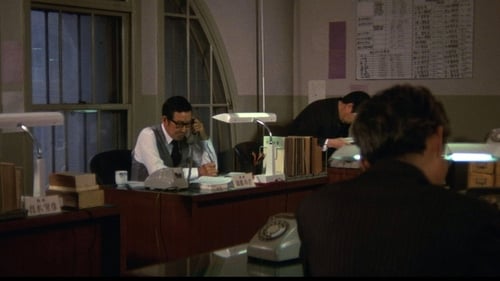
The body of Sakai Hatsuko, a woman of 23 who has been slain with a knife, has been found in a forest. Some days later, Ueda Hiroshi, a 19-year-old shipyard worker, is arrested and charged with the murder. At Ueda's trial, a complex story unfolds.
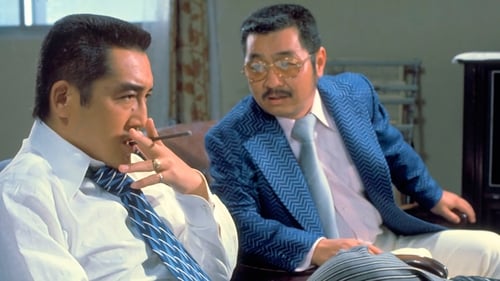
An ambitious Kansai yakuza don moves in on Tokyo using financial and political tactics, sparking conflict with a local criminal association.
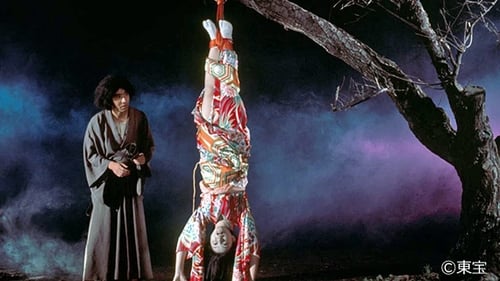
Priest Ryonen
A scruffy detective investigates the murders of three sisters on a small Japanese island in 1946.
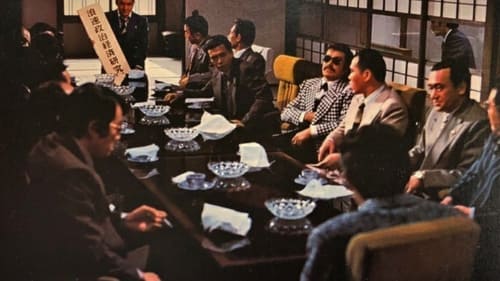
Kazumasa Sakura
A yakuza leader must balance his violent tactics necessary for the rough streets of 1960s Tokyo with the domestic needs of his daughters.

A young doctor starts working at a mental hospital in the Yokohama region and falls in love with one of the patients there.
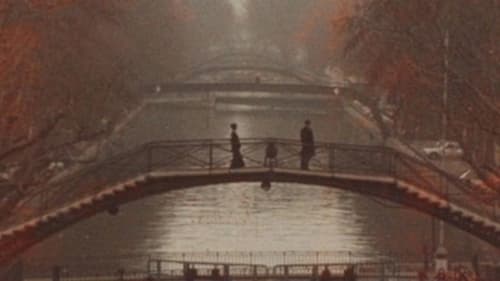
Tajihei Itsuki
Tajihei Kazuki es un magnate de los negocios de Tokio que se está muriendo. Su esposa, Yoshie, falleció hace un año y considera un viaje de negocios como vacaciones para alejarse de la vida cotidiana. Sin embargo, comienza a sentirse enfermo y le diagnostican cáncer terminal de estómago. Nadie más lo sabe, piensa en el suicidio, pero ese no es su estilo por lo que reevaluará su vida, sus valores, sus relaciones con familiares, colegas y amigos.
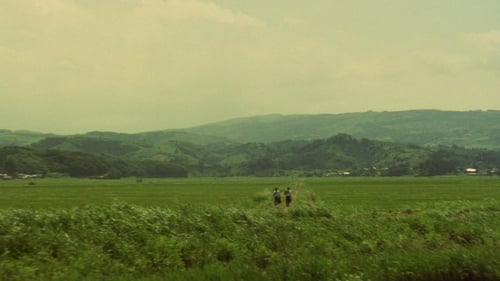
Ex-Finance Minister Tadokoro
Dos detectives son asignados a la investigación del asesinato de un viejo ex-policía en la estación de ferrocarril de Tokio sin ninguna motivación aparente. Poco a poco, la investigación acabará conduciendo al descubrimiento del pasado oculto de un joven y prometedor músico...

Daisuke Manpyo
Adaptation of the novel by Toyoko Yamasaki.

Though a farmer and his fellow villagers in this Japanese film resist the effort to turn the unspoiled region in which they live into a land development, they are ultimately unsuccessful.

Josuke Misugi
Story of a woman, Saiko, who divorces her doctor husband when she is given a baby by a stranger who claims it is the husband's child. Saiko embarks on an affair with her cousin's husband, but a crisis threatens when she discovers that her ex-husband is about to remarry.

Soichi Mamiya
Tras la muerte de Miwa, sus mejores amigos deciden hacerse cargo del futuro de su viuda Akiko y de su hija Ayako. Todos creen que la mejor solución es casar a la joven, pero ésta rechaza uno tras otro a todos los candidatos que le presentan; así que deciden casar primero a la viuda.

Heinosuke Gosho movie

The story tells of Tsuchiya, a university professor and a widower who is in love with a widow who runs a small restaurant, and his son is in love with a runaway girl who turns out to be the leader of a religious sect. Kusano is the henpecked proprietor of a rice biscuit shop who dreams of owning a bird and dog shop and his daughter is in love with a boarder, employed by the private detective agency searching for the runaway girl. The agency head has his own dream of arranging thirty marriages and has already accomplished twenty-seven. Tatsumi is a newspaper reporter who dreams of a big scoop to enable him to marry a girl TV producer and his friend a mountain climbing enthusiast who dreams of joining a Himalayan expedition but is opposed by his wife. His love of the mountains is shared by a boarder in their home and by a fishmonger's son.

Reisaku Niizu
Story of a romance between a middle-aged journalist and a young woman.

The inventor of a ground-breaking glue, Sanada, becomes rich thanks to his discovery a high executive in his company. Because of this promotion, his world is changing completely : his wife behaves like never before, considering she's now rich and has the right to do whatever she wants, even having an affair. (Also occasionally known in English as “Overflow”)

Gosuke Aota
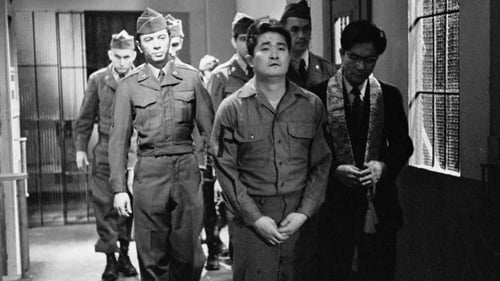
Lieutenant-General Yano
Television production of I Want to Be a Shellfish. On a post-war peaceful day in Japan, Toyomatsu Shimizu, a barber as well as a good father and husband, is suddenly arrested by the Prefectural Police as a war criminal and sued for murder. According to the accusation by GHQ, Toyomatsu "attemped to kill a US prisoner", which was nothing but an order by his superior and failed after all with hurting the prisoner by weak Toyomatsu. Also, Toyomatsu was driven to corner at the trial by the fact that he fed the US prisoner some burdock roots to nourish him. Toyomatsu believes nothing but being not guilty, but he is sentenced to death by hanging. Prior to the execution, Toyomatsu writes a long farewell letter to his family, the wife and the only son: "If I ever incarnate, I hate to be a human being any more.... Oh yes, I would like to be...a shellfish living on the rock-bottom of the sea."
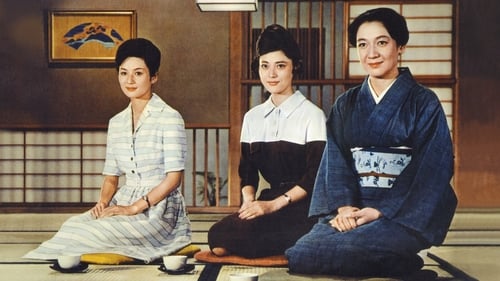
Wataru Hirayama
A un hombre de negocios sus amigos le piden constantemente consejos sobre el matrimonio, la vida conyugal y la vida familiar. Su serenidad y sus agudos análisis le permiten encontrar el consejo oportuno para cada situación. Sin embargo, cuando él mismo tiene que afrontar una delicada situación que afecta a su hija mayor, tropezará con grandes dificultades para encontrar una solución al conflicto.
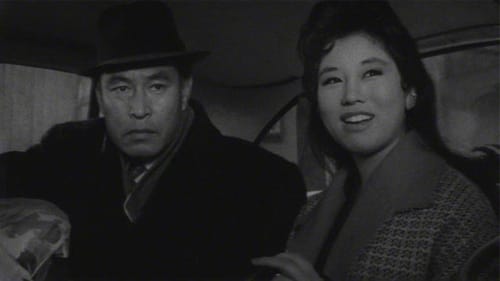
Director
A movie adaptation of Funayama Kaoru's novel of the same name, which depicts the story of a modern youth who is attracted to the evil path. Saburi Shin, a well-known actor who also demonstrated his skill as a director in a bold social work, embodies a person with a complicated dilemma in a shadowy manner, and is a dramatic work that plays a part in the lead role.

Kaji Sosuke
A movie adaptation of Funayama Kaoru's novel of the same name, which depicts the story of a modern youth who is attracted to the evil path. Saburi Shin, a well-known actor who also demonstrated his skill as a director in a bold social work, embodies a person with a complicated dilemma in a shadowy manner, and is a dramatic work that plays a part in the lead role.

Ichiro Amano
1957 drama from director Kôzaburô Yoshimura

Isoroku Yamamoto
Admiral Isoroku Yamamoto leads the Combined Fleet of the Imperial Japanese Navy to defeat the American Fleet.

A botanist woos the secretary of an industrialist whose company threatens the local water supply.
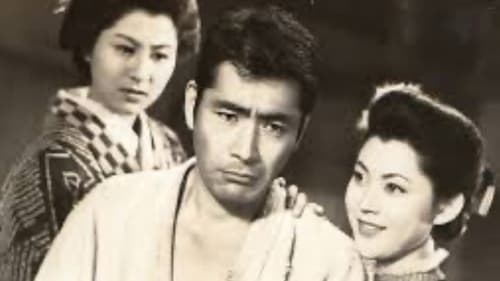
Masazumi Asaji
Masahiko Koseki, a judo master, gets in several fights as a result of protecting a young woman. Despite his success, Koseki is expelled from his judo school because of his propensity for street fighting. He goes to work for a gangster named Joji, but when he realizes that Joji is mixed up in the slave trade, Koseki helps the police in their attempts to foil Joji.

A Chinese medical student named Gan Shosho finds himself cut off from his homeland as he is studying in Japan during the outbreak of the war. Despite his difficult circumstances, he finds love in the form of Sachiko and the two marry. They later travel to Nanjing to live a new life together where Sachiko and Shaochang cooperate with the Japanese-backed government. Their ultimate hope is to secure peace but their idealism is not enough to keep them together through brutal times and with the end of the war the two find themselves facing a divorce... --Osaka Asian Film Festival

Kotaro Haraguchi
Based on the novel by Yoshie Hotta

Director
Based on the novel by Yoshie Hotta

Director
Part two of Shin Saburi's Theater of Life adaptation.

Part two of Shin Saburi's Theater of Life adaptation.

Director
Part one of Shin Saburi's Theater of Life adaptation.

Part one of Shin Saburi's Theater of Life adaptation.

Director
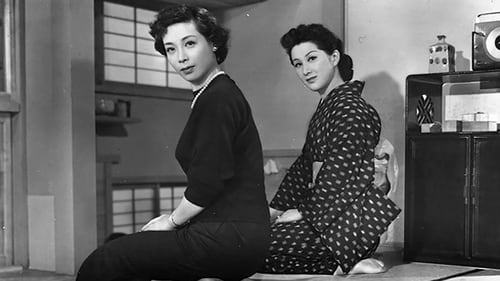
Mokichi Satake
Takeo, una mujer caprichosa de la alta sociedad de Tokio, se aburre con su marido, un hombre tranquilo, que se ha educado en el campo, aunque ahora es ejecutivo de una empresa.

Daisuke Sakuma

Nami (波 Nami) is a Japanese film directed by Noboru Nakamura. It was entered into the 1952 Cannes Film Festival.

The Stormy Era of Twenty Years

Director
The Stormy Era of Twenty Years

Aa seishun 1951

Director
Aa seishun 1951

kikyou - The Return

Probation (1950)

Director
Probation (1950)

Ryukichi
A young lawyer falls in love with the daughter of his former professor, whom he's hired to tutor his children.

Kiyoshi, un joven oficial de clase acomodada, es enviado a la Península de Izu, cerca de Tokio. No hay lugar dónde vivir y el templo local permanece lleno de gente que ha debido alejarse de sus hogares como consecuencia de la guerra. Unos lugareños le indican a Kiyoshi que el dueño de un restaurante cercano y padre de dos hijas solteras tiene una habitación libre en su casa. Las relaciones entre los miembros de la familia no volverán a ser las mismas luego de la llegada del nuevo inquilino.
Estrenada el 30 de agosto de 1945, apenas dos semanas después de la rendición nipona, Las jóvenes de Izu fue el primer estreno cinematográfico japonés luego del fin de la Segunda Guerra. Gosho había realizado apenas cuatro películas durante esos años y ninguna de ellas puede ser considerada artículo de propaganda.
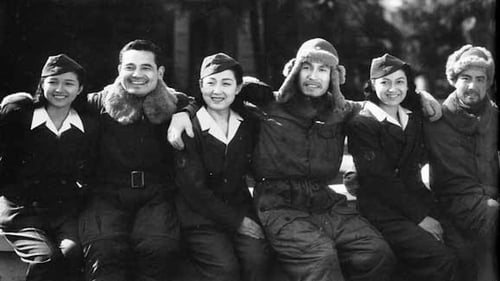
The story of an airport and its air traffic control crew in a remote and northern Japanese town. Three of the air traffic controllers are female with one of them working with her dead fiancé's sister. The engaged man had gone to war and never returned.

Captain
Tomuhiko es un niño de 10 años que pasa su infancia bajo la sombra de una guerra civil japonesa, en 1896. Su único objetivo será alistarse en el ejército y cumplir la promesa que le hizo a su padre....

Japanese Warmovie

Karasawa, army doctor

Tsuneoka Shinichiro
Japanese propaganda film about the Normanton Incident.

Amusing masterpiece from director Yoshimura Kazusabu divided in two parts taken from the newspaper serial novel of Shishiko Shishi. Like in "Warm Current", Shin Saburi, Mieko Takamine and Mitsuko Mito are appearing, but this is a fresh comedy very unusual for wartime.
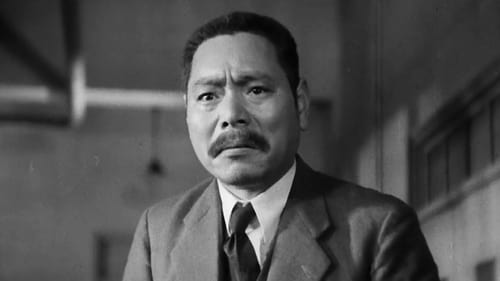
Yasutaro Kurokawa, the father's colleague
En una ciudad provinciana, un profesor viudo lleva una vida modesta en compañía de su único hijo. Cuando en un viaje escolar, un alumno se ahoga en un lago, él asume la responsabilidad del accidente y dimite. Decide entonces abandonar la ciudad y trasladarse a su pueblo natal. Durante el viaje, padre e hijo discuten sobre el futuro y entre ellos se establece una relación al mismo tiempo cercana y distante. Un día el padre le anuncia que tiene la intención de mandarlo a estudiar a un internado. Años más tarde, el padre trabaja en Tokio y el hijo es maestro. En un encuentro el hijo le anuncia al padre que se va a la guerra.

A group of female doctors travel to a remote village during their summer holiday to offer free medical care to villagers. There they must battle prejudice and superstition as much as disease.

In the movies of those times, you can see young boys in the company scene often. Those boys were called kyuji (給仕), which means “waiter” literally. They are doing odd jobs in the company including serving tea, ushering visitors, buying tobacco, etc. Ordering lunch for the individual requests was also an important job. Those boys were hired often as soon as they graduated from elementary school.

Hana wa itsuwarazu (1941) is the second directorial work by Shochiku's Oba Hideo. Oba had previously worked as an assistant director to Shimizu Hiroshi and penned films for Shimazu Yasujiro. In this early effort, he is not stylistically very far from either, but then again all Shochiku directors resemble each other to a point. The film is an everyday romance for younger audiences, full of clean, ideal human beings.
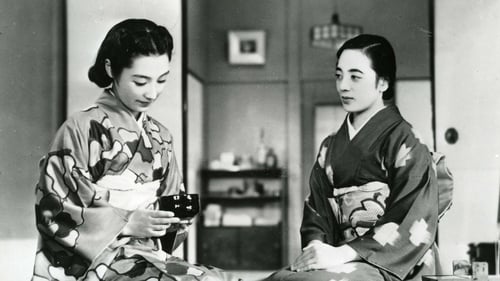
Shojiro Toda
Después de la muerte del patriarca, los Toda, una familia de clase alta, está posando para una foto. Al mismo tiempo que todos lamentan la muerte del padre, se enteran de que éste les ha dejado una deuda considerable.

Matsuda

Kinuyo is a daughter of rice cracker shop in downtown. She fell in love with her sister's boyfriend. It is a story whose theme is warm human relationships in a town of customs and manners.

Yuzo Hibiki
Adaptation of Kishida Kunio's novel. Set against the backdrop of a power struggle within a hospital, depicts the love lives of the director's daughter, the administrative director, a doctor, and a nurse.

Weed with Flowers
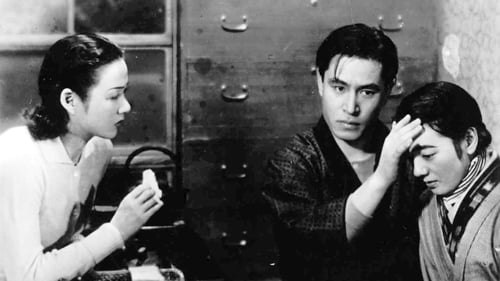
Keisuke Mamiya
A man who works late hours at a deadening job lives together with his wife and his younger sister. The younger sister's a modern girl who's starting to receive romantic attention from one of her co-workers.

Based on the original work by Fumiko Hayashi, this is a story about a woman and two men. The lust is restrained and indifferent. The story even has an elegance to it, which is the charm of the 30 year old Kinuyo Tanaka. There was a time when Tanaka was adorable... Shin Saburi was young and Chishu Ryu was young too. It is a promise of melodrama that the rival or friend is prettier than the heroine Kinyo.

Shuzo Ubukata
Two childhood friends go their own ways but meet again some years later after they have both married. They get re-acquainted, meet each others’ families, and all is well. Then the disagreements start...

A young doctor, Kozo Tsumura, falls for young nurse Katsue Takaishi. But she's got a secret: she's a widow with a son. Kozo and Katsue decide to run away to Kyoto, but her child suddenly became sick and she just missed the train and Kozo. She makes it to Kyoto finally, but is unable to meet him. Plus she isn't accepted into Kyoto society. She goes back to her hometown and tries to forget him. She quits the hospital to concentrate on her singing. She makes her professional debut with the hit "Aizen Katsura". Kozo is in the audience.
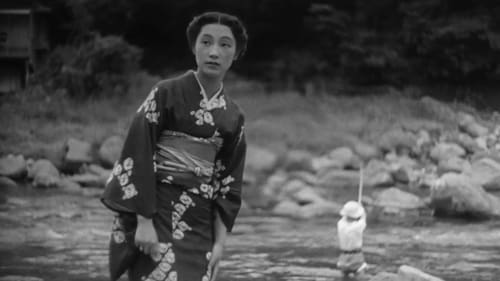
Shintaro Omura
Dos invidentes se ganan la vida trabajando como masajistas en varios balnearios. En uno de ellos coinciden con una misteriosa mujer de Tokio, de la que muchos sospechan que es la culpable de los robos que se están produciendo en las posadas de ese balneario. Uno de los dos masajistas se enamora de la mujer...

Terao
The movie follows a young woman (Kinuyo Tanaka), a daughter of a high-ranking businessman and his neglected mistress, as she struggles to ease her mother's loneliness, while also having an affair with her father's subordinate.

A Japanese wartime film directed by Yasushi Sasaki.

Sabu Toshinobu is an archaeologist who has taken a liking to Kinuyo Tanaka, the daughter of an archaeologist at an inn in Izu, where he is visiting to conduct an excavation. Sabun gets along well with his childhood friend Michiko Kuwano, but his mother (Fumiko Okamura) is against her, so he gives up easily and ends up being married to Kinuyo Tanaka.

Sabu Toshinobu is an archaeologist who has taken a liking to Kinuyo Tanaka, the daughter of an archaeologist at an inn in Izu, where he is visiting to conduct an excavation. Sabun gets along well with his childhood friend Michiko Kuwano, but his mother (Fumiko Okamura) is against her, so he gives up easily and ends up being married to Kinuyo Tanaka.
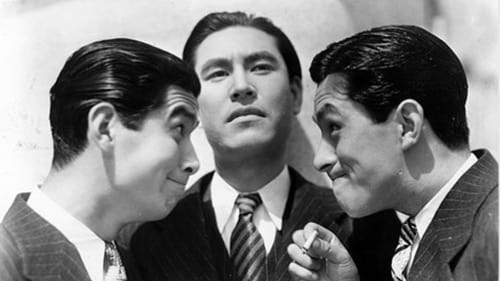
Shin Miki
Three men vying for the same job end up chasing the same girl in this comedy-drama from noted Japanese director Yasujiro Shimazu.

Jôsuke Arao
A penniless orphan loses the woman he loves, when her family arranges a marriage to a wealthy playboy. He believes she was blinded by greed, and becomes a miser.

Yasuo Asano
Kinuyo is a daughter of doctor of Chinese medicine, and Yasuo is a son of surgeon. Their families always fight like cat and dog. This relationship is ancestral. Although Kinuyo and Yasuo love each other, they have different thoughts toward treatments.

A businessman’s daughter falls in love with one of her father’s employees.

Miura
Episode in the life of a composer of a popular Japanese song.

The eldest daughter of a noble family is in love with an aviator while being courted by a fellow aristocrat she thinks is a dullard. Told from the perspective of Ryota. In this second part, we learn that Akemi is pregnant...

The eldest daughter of a noble family is in love with an aviator while being courted by a fellow aristocrat she thinks is a dullard. This part is told from the perspective of Akemi.

The narrative is about a woman who faces hard times, when her husband is arrested for a crime committed by his boss. The woman also has a child to look after, and they end up meeting several colorful personalities.

A musical film made for the inauguration of Shochiku's Ofuna Studio, with an all-star cast of the era.

Doctor
Otoku asks her brother Bunkichi to speak with her son Seiichi, a young man for whom sacrificed everything but who now seems to be headed for a wastrel life. Bunkichi admonishes the boy to study harder, but it seems his uncle's advice may already be too late.

Takayuki Shigezumi
A melodrama about a businessman's relations with the three women in his life.
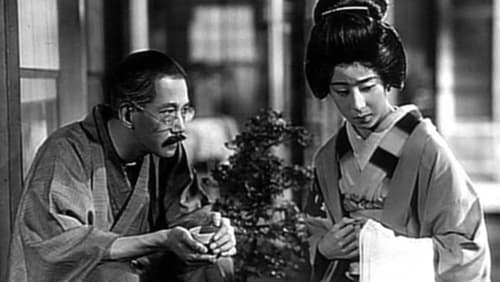
Kimimasa Hashimoto
Family drama. A middle-aged father has just married off his third daughter, but still has his nine year old son to raise whom he resents as he was unwanted. (British Film Institute)



























